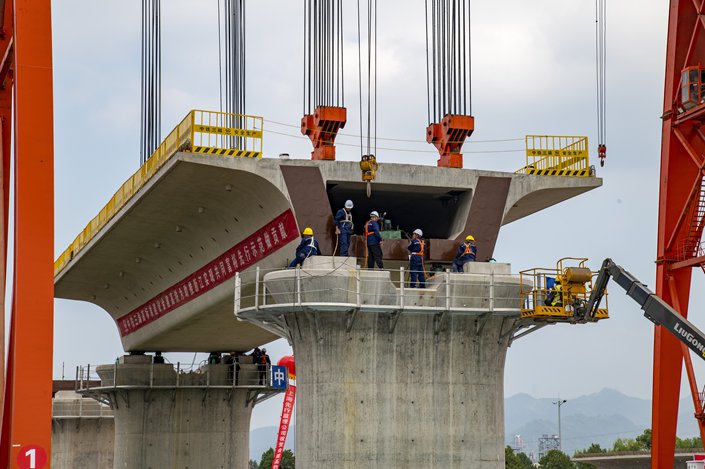Yu Yongding: Can China Stabilize Its Economy Without Increasing Central Government Debt?

When effective demand weakens, a government often looks to boost infrastructure investment to drive economic growth. The core of China’s expansionary fiscal policy is having local governments, and enterprises, especially state-owned ones, increase infrastructure investment.
However, a successful implementation of infrastructure investment and its effectiveness in stimulating China’s economic growth are subject to external conditions such as Covid-19 restrictions, and whether certain operational problems can be solved. Two major problems lie in the financing structure of infrastructure investment and the use of local governments’ special-purpose bonds (SPBs).

Yu Yongding, a former president of the China Society of World Economics and director of the Institute of World Economics and Politics at the Chinese Academy of Social Sciences, served on the Monetary Policy Committee of the People’s Bank of China from 2004 to 2006.
- 1China Officials Dismiss Tax Hike Rumors After Tech Selloff
- 2Cover Story: How Gutter Oil Became a Prized Fuel for International Airlines
- 3Prominent Chinese Journalist Liu Hu Detained by Police in Chengdu
- 4Maersk Unit Takes Over CK Hutchison Panama Ports After Court Ruling
- 5China Provinces Set Cautious 2026 Growth Targets
- 1Power To The People: Pintec Serves A Booming Consumer Class
- 2Largest hotel group in Europe accepts UnionPay
- 3UnionPay mobile QuickPass debuts in Hong Kong
- 4UnionPay International launches premium catering privilege U Dining Collection
- 5UnionPay International’s U Plan has covered over 1600 stores overseas





